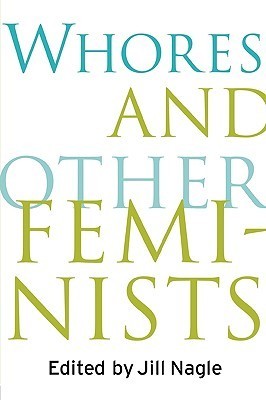
The Feminist Killjoy Handbook: The Radical Potential of Getting in the Way
Book Description
Dare to disrupt. In "The Feminist Killjoy Handbook," Sara Ahmed challenges the status quo and ignites a rebellion against complacency. With piercing clarity, she reveals how the bold act of being a killjoy—pointing out injustices and refusing to play along—can unearth radical change. Every unspoken truth and awkward pause becomes a powerful weapon in dismantling systemic oppression. As Ahmed deftly navigates the intersections of feminism, race, and resistance, she empowers voices that have long been silenced. What happens when you refuse to accept the world as it is and demand it to be better?
Quick Book Summary
"The Feminist Killjoy Handbook" by Sara Ahmed is a provocative guide that reclaims the term “killjoy” as a vital feminist practice. Ahmed explores what it means to disrupt social gatherings, conversations, and institutions by calling out injustices, even at the cost of comfort or belonging. The book frames feminist killjoys as necessary troublemakers—those who refuse to ignore sexism, racism, or other forms of oppression. Through personal stories, feminist philosophy, and sharp social critique, Ahmed reveals how the act of being a killjoy is not about negativity, but about hope for a more just world. By affirming the strength in disruption, Ahmed empowers readers to embrace discomfort, resistance, and the pursuit of collective change.
Summary of Key Ideas
Table of Contents
Reclaiming the Killjoy
Sara Ahmed opens her handbook by reclaiming the term “feminist killjoy,” a label often weaponized against feminists who challenge the status quo. She argues that being called a killjoy is not something to shy away from, but is instead a recognition of the necessary work of drawing attention to societal injustices. By refusing to laugh off sexist jokes or tolerate oppressive behavior, feminist killjoys break the flow of everyday complicity. Ahmed encourages readers to embrace the discomfort and conflict that arise when they divert the smooth surface of social interactions in pursuit of something better.
Disrupting Comfort and Compliance
Much of Ahmed’s argument centers on the value of disruption. She explains how social comfort often depends on ignoring or minimizing harm. When someone speaks up about injustice, they are seen as spoiling the mood or creating unease. However, Ahmed insists that this “spoiling” is an act of care for those harmed by social norms, and a step toward accountability. Disrupting comfort means refusing to let oppressive systems remain invisible or unchallenged. In this way, the handbook advocates for a politics that values truth-telling over harmony, even when it draws ire or isolation.
The Politics of Refusal
Ahmed amplifies the radical practice of refusal—a deliberate decision not to comply with unjust expectations. She draws on feminist and anti-racist traditions, exploring how refusal can be both an individual and collective act. In workplaces, families, or institutions, saying “no” to marginalization and objectification is framed as a form of self-preservation and resistance. Ahmed points out that refusals are often met with backlash, but stresses that refusal is not just an action; it is a principle that opens new possibilities for solidarity and change.
Solidarity Through Discomfort
Solidarity emerges as a theme threaded throughout the book. Ahmed acknowledges that being a killjoy can be isolating, but stresses that shared discomfort can foster powerful alliances. By foregrounding conversations about pain, fatigue, and frustration, Ahmed shows how killjoys can find each other and build coalitions. True solidarity, she argues, is rooted in mutual support and the willingness to risk personal comfort to stand against systemic inequalities. This collective commitment deepens the movement for social justice.
The Transformative Potential of Complaint
Ahmed concludes by examining the transformative power of complaint and critique. She positions complaints—formal or informal—as vital acts that document harm and push institutions toward reform. While making complaints can be exhausting and may expose complainants to further harm, they keep hope alive for a better world. Ultimately, Ahmed's handbook inspires readers to recognize the power in “getting in the way” and to persist in the uncomfortable, courageous work of feminist killjoying for the sake of radical, systemic transformation.
Download This Summary
Get a free PDF of this summary instantly — no email required.





